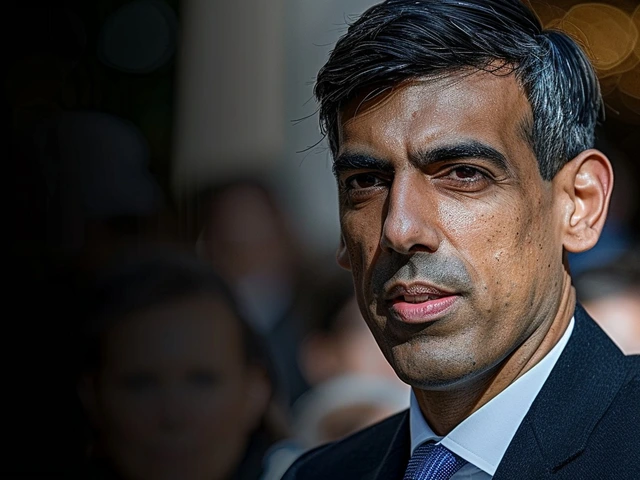Germany Leads Opposition to Proposed EU Foreign Influence Law
Germany is at the forefront of a significant rebellion against the European Union's attempt to implement a foreign influence law. This momentous opposition is underscored by a coalition of EU member states, each voicing apprehensions about the potential repercussions of such legislation on global diplomatic relations and international trade. These nations, including Austria, Sweden, Denmark, and the Netherlands, share Germany's concerns about the potential pitfalls of the law, which is designed to foster transparency and combat foreign interference within the EU’s political and economic spheres.
The proposed foreign influence law is particularly aimed at increasing transparency by mandating that organizations and companies divulge their foreign funding sources and identify any potential conflicts of interest. The European Commission, the executive branch of the EU, has staunchly defended the necessity of this law, arguing that it is paramount for safeguarding the democratic integrity and economic stability of the Union from external manipulation. However, the law's critics fear that it could introduce cumbersome bureaucracy, limit international collaboration, and hinder the ability to engage cooperatively on sensitive global issues.
Concerns from Germany
Germany's opposition is grounded in worries about the law’s broad implications. Leaders argue that while transparency is crucial, the stipulations of the proposed foreign influence law might cast too broad a net. Businesses, NGOs, and other organizations may face increased administrative burdens, potentially stymieing their operations and foreign partnerships. German officials suggest that the requirement to disclose foreign funding could create an environment of suspicion and skepticism that is antithetical to fostering open international collaborations.
Moreover, there is a palpable fear that the legislation could act as a deterrent to foreign investments. If international partners view the EU as an increasingly restrictive environment, they might divert their investments and collaborations to other, more accommodating regions. This could have significant economic repercussions not only for Germany but for the EU as a whole.

Austria, Sweden, and Denmark Join the Chorus of Dissent
Supporting Germany's stance, Austria has also expressed its dissent, echoing concerns regarding the imposition of excessive bureaucracy. Austrian officials argue that the law, while well-intentioned, could inadvertently hamper the operational efficiency of organizations by burying them under a mountain of paperwork and regulatory compliance demands.
Similarly, Sweden has voiced apprehensions about the potential impacts on its innovative industries and startups. The country, known for its robust tech sector, fears that the law could discourage foreign partnerships critical for the growth and development of its burgeoning businesses. Swedish authorities argue that fostering an open and collaborative international landscape is vital for innovation and progress.
Denmark joins the dissenting voices, highlighting the potential negative impacts on international diplomacy. The Danish government argues that the law's stringent requirements could complicate diplomatic missions and international relations. They caution that excessive transparency could conflict with the need for discretion in certain sensitive international engagements.
Balancing Transparency with International Collaboration
The debate brings to the forefront the delicate balance between ensuring transparency and maintaining viable international collaborations. Transparency is undoubtedly essential for safeguarding democratic processes and preventing undue foreign influence. However, achieving this without compromising international relationships and economic activities is a complex challenge.
The Netherlands, another vocal critic of the law, underscores the importance of nuanced and carefully calibrated regulations. Dutch officials argue for a balanced approach that addresses the risks of foreign interference while preserving the ability to engage effectively with global partners. They suggest that overly stringent measures could prove counterproductive, potentially isolating the EU from significant international cooperation.
The European Commission remains resolute in its stance, emphasizing that the proposed law is a critical tool for protecting the EU's democratic and economic interests. They argue that recent events, such as allegations of foreign interference in elections and economic manipulation, highlight the urgent need for robust measures to safeguard the Union’s integrity. The law, according to them, seeks to strike a balance by ensuring transparency without unduly hampering legitimate international engagements.

The Prospective Impact on International Relations and Trade
The broader implications of this legislative proposal extend beyond internal EU dynamics. There are concerns that the law could inadvertently strain relationships with key international partners. If foreign entities perceive the EU's regulations as overly intrusive, it could lead to a cooling of diplomatic and trade relations.
The law's requirement for detailed disclosures about foreign funding could be particularly contentious. In certain cases, transparency could conflict with strategic interests, potentially leading to a reduction in foreign direct investments. Countries reliant on international partnerships for economic growth and development may find themselves at a crossroads, having to navigate the tightrope between adhering to EU regulations and maintaining favorable international collaborations.
Potential Administrative Burdens
A significant concern among the critics is the potential administrative burden that the law could impose. Organizations and companies might need to allocate substantial resources to ensure compliance with the new regulations. This could divert focus and resources away from core activities, potentially impacting operational efficiency and effectiveness. Small and medium-sized enterprises (SMEs), in particular, could find it challenging to navigate the complexities of the proposed law.
Furthermore, the law’s opponents argue that it could lead to redundant documentation and reporting requirements. They caution that the law's broad scope might result in organizations being inundated with compliance demands that do little to improve transparency but significantly increase operational overheads.

The Path Forward
The debate over the EU’s proposed foreign influence law is likely to continue, as member states and the European Commission grapple with finding an equitable resolution. It is clear that the objectives of the law – increasing transparency and protecting democratic and economic interests – are widely supported in principle. However, there is significant disagreement about how best to achieve these goals without causing undue harm to international relations and trade.
Moving forward, it will be essential for the EU to engage in comprehensive dialogues with member states and stakeholders. Crafting a balanced law that addresses the risks of foreign interference while accommodating the diverse concerns of its member states will be crucial. The path forward demands a collaborative approach, one that is rooted in mutual understanding and a shared commitment to both transparency and international cooperation.
As the EU seeks to navigate these complex waters, the outcome of this debate will have far-reaching implications for the Union's future. Striking the right balance will be key to fostering a secure, transparent, and thriving European Union that remains open to global engagement and collaboration.






